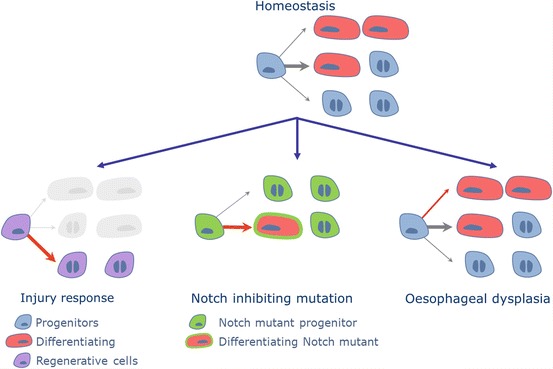Fig. 10.5.

Oesophageal progenitor cells are able to change their cell fate programme in response to tissue perturbations such as injury, neoplastic mutations and tumorigenesis (red arrows). Notch inhibiting mutations in progenitors showed an increased proliferation rate, favouring asymmetric cell division. Surprisingly, benign tumours developed upon cigarette smoke derived nitrosamines did not show a significant change in the rate of cell division. The perturbation seemed to be the result of a discrete bias towards proliferation
